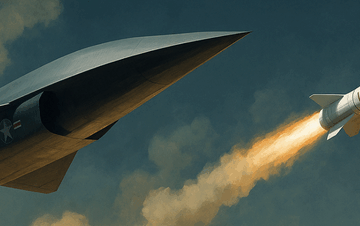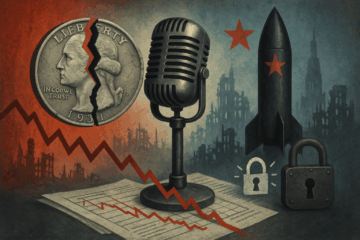Newly discovered communications between Donald Trump Jr. and Wikileaks during the 2016 campaign reveal a coordinated effort to distribute information damaging to the Clinton Campaign.
- Wikileaks is considered to be a non-state intelligence agency with hostile intentions to the United States and ties to Russian military and foreign intelligence agencies.
- Wikileaks asked Donald Trump Jr. for his cooperation in coordinating the distribution of political messages, in contesting the results of the election, and in sending “the right signals” to U.S. allies like Australia and the U.K.
- These revelations indicate some form of coordination between a Kremlin actor and the Trump campaign.
- At the strategic level, these communications centered on building a sustainable narrative that would be mutually beneficial for the Trump Campaign, Wikileaks, and their respective backers.
- Steve Bannon, Kellyanne Conway, Brad Parscale, Hope Hicks, and Jared Kushner were informed of these communications during the campaign.
- Wikileak’s suspected involvement with Russian military and security intelligence services was public knowledge at the time.
The Atlantic Magazine published a set of private communications between Donald Trump Jr. and Wikileaks. These messages were sent prior the election and discussed how best to disseminate the trove of DNC emails obtained by Wikileaks through a Russian Intelligence hacking operation.
[bs-quote quote=”Wikileaks asked Donald Trump Jr. for his cooperation in coordinating the distribution of political messages, in contesting the results of the election, and in sending “the right signals” to U.S. allies like Australia and the U.K., “to start following the law and stop bending it to ingratiate themselves with the Clinton’s.”” style=”style-16″ align=”left”][/bs-quote]
The messages reveal a lengthy and often one-sided correspondence between Wikileaks and Donald Trump Jr. that continued until sometime July 2017, at least. The U.S. intelligence community believes that Wikileaks was either playing a complicit or ignorant role in disseminating information obtained by Russian intelligence services. The CIA Director, Mike Pompeo, labeled Wikileaks as a “hostile non-state intelligence agency” at his first public remarks as CIA Director at the Center for International and Strategic Studies.
In the messages, Wikileaks asked Donald Trump Jr. for his cooperation in coordinating the distribution of political messages, in contesting the results of the election, and in sending “the right signals” to U.S. allies like Australia and the U.K., “to start following the law and stop bending it to ingratiate themselves with the Clinton’s.”
These revelations indicate some form of coordination between a Kremlin-linked actor and the Trump campaign, mainly as the email conversations between Trump Jr. and Wikileaks were taking place during campaign events and refer to references to Wikileaks. Furthermore, it seems as if the Wikileaks team perceived themselves as working in the capacity a partner of—or even a department within—the Trump Campaign. The view within Wikileaks mostly seemed to be that the two organizations were working in tandem.
The messages allege media strategy coordination by Trump Jr. and Wikileaks.
Julia Ioffe, the author of the Atlantic’s piece centers on a specific exchange between Trump Jr. and Wikileaks. On October 3, 2016, WikiLeaks wrote: “Hiya, it’d be great if you guys could comment on/push this story,” WikiLeaks suggested, attaching a quote from then-Democratic nominee Hillary Clinton about wanting to “just drone” WikiLeaks founder, Julian Assange.
“Already did that earlier today,” Trump Jr. responded an hour-and-a-half later. “It’s amazing what she can get away with.” Trump Jr. wrote again two minutes later, asking, “What’s behind this Wednesday leak I keep reading about?”
[bs-quote quote=”Hiya, it’d be great if you guys could comment on/push this story.” style=”style-8″ align=”center” author_name=”Wikileaks” author_job=”to Donald Trump Jr. on October 3, 2016″ author_avatar=”http://globalsecurityreview.com/wp-content/uploads/2017/11/WL_Helping_Hand.jpg”][/bs-quote]
[bs-quote quote=”Already did that earlier today, what’s behind this Wednesday leak I keep reading about?” style=”style-8″ align=”center” author_name=”Donald Trump Jr.” author_job=”to Wikileaks on October 3, 2016″ author_avatar=”http://globalsecurityreview.com/wp-content/uploads/2017/11/30309613870_787846f5fc_b.jpg”][/bs-quote]
The day before, Roger Stone, an informal advisor to Donald Trump during the campaign, tweeted: “Wednesday @HillaryClinton is done. #WikiLeaks.” WikiLeaks didn’t respond to Trump Jr.’s question, but on October 12, 2016, the account again messaged Trump Jr: “Hey Donald, great to see you and your dad talking about our publications,” WikiLeaks wrote.
“Strongly suggest your dad tweets this link if he mentions us,” WikiLeaks went on, pointing Trump Jr. to the link wlsearch.tk, which it said would help Trump’s followers dig through the trove of stolen documents and find relevant stories.
[bs-quote quote=”Hey Donald, great to see you and your dad talking about our publications. Strongly suggest your dad tweets this link if he mentions us. There’s many great stories the press are missing and we’re sure some of your follows will find it. ” style=”style-8″ align=”center” author_name=”Wikileaks” author_job=”to Donald Trump Jr. on October 12, 2016″ author_avatar=”http://globalsecurityreview.com/wp-content/uploads/2017/11/WL_Helping_Hand.jpg”][/bs-quote]
“There’s many great stories the press are missing and we’re sure some of your follows [sic] will find it,” WikiLeaks went on. “Btw we just released Podesta Emails Part 4.”
[bs-quote quote=”Btw we just released Podesta Emails Part 4.” style=”style-8″ align=”center” author_name=”Wikileaks” author_job=”to Donald Trump Jr. on October 12, 2016″ author_avatar=”http://globalsecurityreview.com/wp-content/uploads/2017/11/WL_Helping_Hand.jpg”][/bs-quote]
Wikileaks Attempted to Communicate with Trump Jr. As Recently as July 2017
The communications didn’t end with the election. In July 2017, in the wake of Donald Trump Jr.’s congressional testimony, Wikileaks reached out to Trump Jr. again. “Hi Don. Sorry to hear about your problems, We have an idea that may help a little. We are VERY interested in confidentially obtaining and publishing a copy of the email(s) cited in the New York Times today.” The message was referencing a Times’ report on emails Trump Jr had exchanged with Rob Goldstone, a publicist who had helped set up the now-infamous June 2016 Trump Tower meeting with Russian lawyer Natalia Veselnitskaya.
“We think this is strongly in your interest,” WikiLeaks went on. It then reprised many of the same arguments it made in trying to convince Trump Jr. to turn over his father’s tax returns, including the argument that Trump’s enemies in the press were using the emails to spin an unfavorable narrative of the meeting. ‘Us publishing not only deprives them of this ability but is beautifully confounding.'”
[bs-quote quote=”Hi Don. Sorry to hear about your problems, We have an idea that may help a little. We are VERY interested in confidentially obtaining and publishing a copy of the email(s) cited in the New York Times today. We think this is strongly in your interest…Us publishing not only deprives them of this ability but is beautifully confounding.” style=”style-8″ align=”center” author_name=”Wikileaks” author_job=”to Donald Trump Jr. in July, 2017″ author_avatar=”http://globalsecurityreview.com/wp-content/uploads/2017/11/WL_Helping_Hand.jpg”][/bs-quote]
In short, Wikileaks offered to publish Donald Trump Jr’s (already released) emails to WikiLeaks in an attempt to show that Wikileaks is objective concerning the targets of their “leaks.” Secondly, this would benefit Trump Jr. as he could use Wikileak’s reputation as a hostile non-state intelligence service to his advantage, by claiming that the emails were doctored or otherwise misrepresented. Unfortunately for Wikileaks, Trump Jr. proceeded by posting the emails to his own twitter account.
Analysis: while mostly one-sided, the communications imply coordination between the Trump Campaign and Wikileaks
The conversations centered on how surrogates or the candidate was referring to specific keywords or hashtags in social media postings. At a technical level, this would indicate coordinated action by the trump campaign with Wikileaks. Beyond these emails, the extent of coordination that has taken place is unclear at this point. At the strategic level, these communications centered on building a sustainable narrative that would be mutually beneficial for the Trump Campaign, Wikileaks, and their respective backers.
While the communications between Trump Jr. and Wikileaks are not necessarily a legal offense (Trump Jr. was a private citizen at the time), if he failed to provide information or documents to the special counsel or congressional investigators, he may be liable for obstruction of justice.
Who Knew What, and When?
What’s important to draw from these exchanges is that while Donald Trump Jr. in large part ignored emails from Wikileaks, he did act on some of their requests. According to Ioffe, the same day that Donald Trump Jr. received the first email that was sent by Wikileaks, he informed senior Trump Campaign officials. Specifically, Steve Bannon, Kellyanne Conway, Brad Parscale, Hope Hicks, and Jared Kushner all became aware of Trump Jr.’s contacts with Wikileaks.
Donald Trump Jr. did not rebuff Wikileaks at any time during his correspondence with the organization. Wikileak’s suspected involvement with Russian military and security intelligence services was public knowledge at the time.



